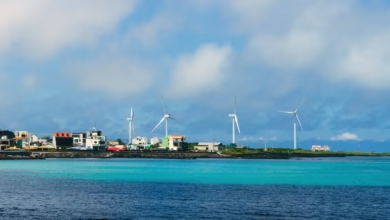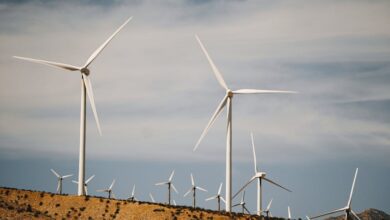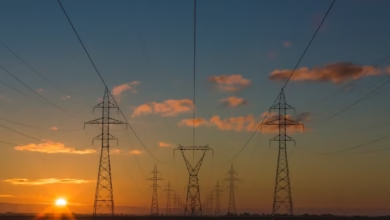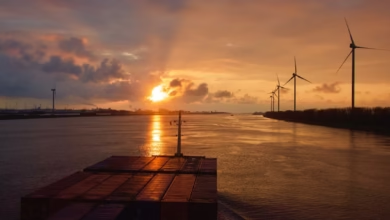Harnessing the Power of Distributed Energy: How Rooftop Solar and Innovations Drive the Renewable Energy Transition

In recent years, the landscape of energy generation has undergone a significant transformation, driven by the increasing adoption of distributed energy solutions such as rooftop solar panels. This shift toward decentralized energy generation represents not only a response to the urgent need for renewable energy alternatives to fossil fuels and nuclear energy but also a pivotal step in the global energy transition. As traditional energy markets adapt to new demands, innovative technologies like energy storage and smart grids are emerging to enhance energy security and efficiency. This article explores the rise of distributed energy, examining how it is reshaping energy economics and policy while promoting sustainable practices and green energy initiatives. We will delve into the contributions of rooftop solar panels to a sustainable future, the advancements in energy innovations that support these efforts, and the broader implications for climate change and energy investments worldwide. Join us as we navigate through the dynamic world of distributed energy and its role in creating a more resilient and environmentally friendly energy system.
- 1. The Rise of Distributed Energy: Transforming Energy Markets and Promoting Renewable Energy Solutions
- 2. Energy Transition and Efficiency: How Rooftop Solar Panels Contribute to a Sustainable Future
- 3. Innovations in Energy Storage and Smart Grids: Enhancing Energy Security and Supporting Green Energy Initiatives
1. The Rise of Distributed Energy: Transforming Energy Markets and Promoting Renewable Energy Solutions
The rise of distributed energy is fundamentally transforming energy markets and promoting renewable energy solutions across the globe. As concerns about climate change heighten and the need for energy security becomes increasingly urgent, more individuals and businesses are turning to decentralized energy generation methods, such as rooftop solar panels and small-scale wind turbines. This shift not only reduces reliance on fossil fuels but also facilitates a broader energy transition that emphasizes sustainability and efficiency.
Distributed energy systems empower consumers to produce their own energy, contributing to energy independence and resilience. By harnessing resources like solar power, wind energy, and hydropower, households can significantly lower their carbon footprints while enjoying the economic benefits of energy savings. Furthermore, innovative technologies such as energy storage solutions and smart grids enhance the viability of these systems, enabling greater energy efficiency and reliability.
In parallel, global energy trends are steering investments toward renewable energy sources, with a marked increase in energy R&D focusing on green energy technologies. As governments implement forward-thinking energy policies and incentives, the growth of distributed energy is further accelerated. This progress is vital in achieving targeted emissions reductions and promoting a sustainable energy future.
Moreover, the integration of electric vehicles (EVs) into the energy landscape exemplifies the potential of distributed energy. EVs can serve as mobile energy storage units, allowing for better energy transportation and utilization during peak demand periods. This synergy is crucial for optimizing energy economics and balancing supply and demand within energy markets.
Additionally, the role of emerging technologies such as hydrogen energy and carbon capture cannot be understated. These innovations provide pathways to decarbonize sectors that are traditionally challenging, like thermal energy and heavy industry. By diversifying energy sources and enhancing energy security, distributed energy not only supports the global shift towards renewables but also positions nations to be competitive in the international arena regarding energy exports and imports.
In summary, the rise of distributed energy signifies a pivotal change in how we generate, consume, and think about energy. By embracing renewable energy solutions and investing in energy innovations, societies can create a more sustainable future that aligns with the principles of energy efficiency, security, and resilience against the backdrop of climate change.
2. Energy Transition and Efficiency: How Rooftop Solar Panels Contribute to a Sustainable Future
The energy transition towards a more sustainable future is gaining momentum, largely driven by the increasing adoption of distributed energy systems, such as rooftop solar panels. These systems represent a significant shift from traditional energy generation methods, enabling consumers to produce their own renewable energy, thereby reducing reliance on fossil fuels and enhancing energy efficiency.
Rooftop solar panels play a crucial role in the broader context of energy efficiency and sustainability. By harnessing solar power, households and businesses can significantly decrease their carbon footprint, contributing to the fight against climate change. The integration of solar power into the energy mix not only supports energy security but also aligns with global energy trends that prioritize green energy sources. As solar technology advances, the cost of installation continues to decline, making it an attractive option for energy investment.
Moreover, rooftop solar installations can be paired with energy storage solutions, such as batteries, which enhance energy efficiency by allowing users to store excess energy generated during peak sunlight hours for use during periods of high demand or low sunlight. This synergy between solar power and energy storage optimizes energy consumption and reduces dependence on traditional energy sources, including nuclear energy, hydropower, and thermal energy.
The shift towards decentralized energy generation also has implications for energy markets and policy. As more individuals and businesses adopt renewable energy technologies, there is a growing need for updated energy policies that support distributed energy systems and promote energy R&D. Effective energy policy can encourage innovations in energy transportation, smart grids, and energy exports, ultimately leading to a more resilient and sustainable energy infrastructure.
In summary, rooftop solar panels are not merely a trend; they are a vital component of the energy transition. By facilitating the shift to renewable energy, promoting energy efficiency, and integrating with other technologies, rooftop solar contributes significantly to a sustainable future. As society continues to seek solutions to combat climate change, the role of distributed energy in shaping energy economics and enhancing energy security will only become more critical.
3. Innovations in Energy Storage and Smart Grids: Enhancing Energy Security and Supporting Green Energy Initiatives
As the world shifts towards a more sustainable energy future, innovations in energy storage and smart grids play a crucial role in enhancing energy security and supporting green energy initiatives. These advancements are essential in managing the increasing complexities of distributed energy systems, such as rooftop solar panels and wind energy installations, which contribute significantly to the renewable energy landscape.
Energy storage technologies, including advanced batteries and thermal energy storage, are pivotal in addressing the intermittent nature of renewable energy sources. By storing excess energy generated during peak production times—such as sunny afternoons for solar power or windy days for wind energy—these systems ensure a steady energy supply, reducing reliance on fossil fuels and enhancing energy efficiency. Moreover, energy storage solutions enable the integration of electric vehicles into the energy markets, providing additional avenues for energy utilization and reducing greenhouse gas emissions.
Smart grids represent another innovation that enhances energy security by facilitating real-time communication between energy producers and consumers. These intelligent systems optimize energy transportation and distribution, allowing for better management of energy imports and exports. By incorporating data analytics and automated responses, smart grids can effectively balance demand and supply, further supporting the energy transition towards greener alternatives like hydropower, bioenergy, and hydrogen energy.
Additionally, energy R&D plays a vital role in driving these innovations forward. Investments in new technologies not only support energy policy objectives aimed at reducing carbon footprints but also foster economic growth through the creation of jobs in the renewable energy sector. As energy markets evolve, the adoption of carbon capture technologies can complement these efforts, allowing for continued use of fossil fuels while minimizing environmental impacts.
In conclusion, the interplay between energy storage innovations and smart grid technologies is essential for achieving a sustainable energy future. By enhancing energy security and supporting green energy initiatives, these advancements contribute significantly to global energy trends and the ongoing energy transition, ultimately addressing the pressing challenges posed by climate change.
In conclusion, the shift towards distributed energy generation, particularly through innovations like rooftop solar panels, marks a pivotal moment in the evolution of energy markets. As we witness the rise of renewable energy solutions, it's clear that decentralized models are not only transforming how we produce and consume energy but are also pivotal in the broader energy transition. By enhancing energy efficiency and promoting sustainable practices, rooftop solar panels play a crucial role in reducing reliance on fossil fuels and nuclear energy, thus contributing to a greener future.
Moreover, advancements in energy storage and smart grids are crucial for enhancing energy security and supporting green energy initiatives. These innovations enable more efficient energy transportation and management, allowing us to better integrate various renewable sources, including wind energy, hydropower, and bioenergy. The ongoing development in energy policy and investment is essential to drive these changes, ensuring that we remain aligned with global energy trends while addressing climate change.
As we continue to explore the potential of distributed energy, it is vital to prioritize energy R&D and foster collaboration across sectors. By embracing technologies such as hydrogen energy and carbon capture, we can further mitigate the impacts of energy imports and exports on our environment. Ultimately, the future of energy lies in our hands, and through concerted efforts in energy innovations and sustainable practices, we can pave the way for a cleaner, more resilient energy landscape.





